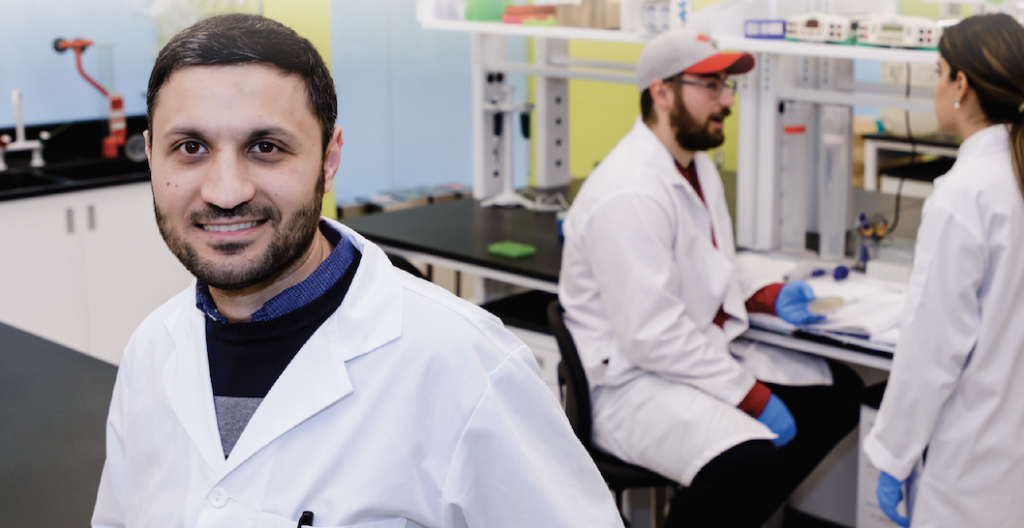
Ali Abdul-Sater
KINESIOLOGY & HEALTH SCIENCE
INFLAMMATION IS ONE WAY that our bodies sound the alarm about potential attacks to the immune system. But in some cases, our systems overreact, resulting in autoimmune conditions from rheumatoid arthritis to diabetes to heart disease. Inflammation can also happen with intensive exercise, a hindrance for high-level athletes at the top of their game. Taking aim at both problems, Kinesiology & Health Science professor Ali Abdul-Sater explores inflammation at the molecular level to find ways to bring it under control.
Funded by a Stars Career Development Award from the Arthritis Society and a Canadian Institute of Health Research (CIHR) grant, Abdul-Sater’s autoimmune project investigates a protein called TRAF1 that has the potential to regulate inflammation. Knowing that people with the genetic variation for arthritis make less of the protein, Abdul-Sater wants to figure out why and how that translates into the inflammation reaction. While past researchers have tried taking the protein out completely but given that this protein plays distinct roles in various immune pathways, Abdul-Sater instead wants to tease
Ali Abdul-Sater explores inflammation at the molecular level to find ways to bring it under control.
out the problem more carefully by making genetically mutated versions and observing how those react in different pathways. If a particular pathway is effective in reducing inflammation, a future drug could be made to address the problem and bring relief.
Abdul-Sater’s second project, funded by grants from the Natural Sciences and Engineering Research Council of Canada (NSERC) and the Canadian Foundation for Innovation (CFI), investigates why intensive exercise can also produce excessive inflammation, with an aim to develop guidelines for high-level athletes as well as the general public on reducing the frequency and severity of this detrimental side effect.
